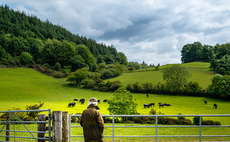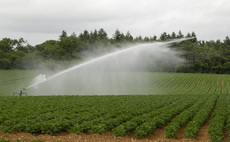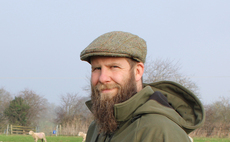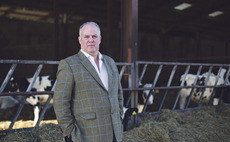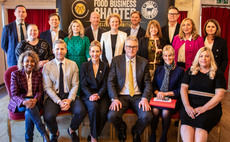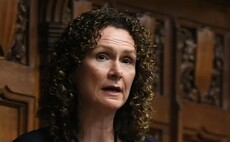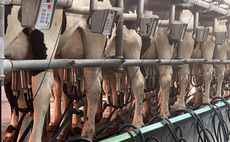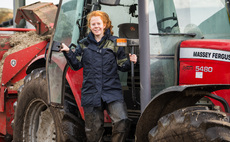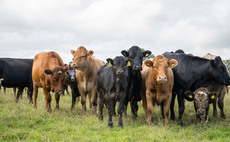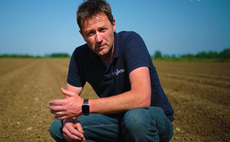
Mentorship has become a fast growing trend within agriculture, helping empower and challenge farmers to become more resilient professionally and personally. Hannah Binns explores what is fuelling demand and looks at opportunities for both mentors and mentees.
Seeking external guidance has become increasingly popular within agricultural circles, with mentorship helping to tackle the isolated nature of farm work and the uncertainties of running a business in an ever-changing industry.
Those speaking to �������� Guardian say the very nature of the industry, with many businesses run by family members and/or very few employees, means there are limited opportunities to ‘bounce ideas' off people not directly involved in the farming business.
Elizabeth Hudson, of Future �������� of Yorkshire, a group supported by the Yorkshire Agricultural Society, says previous generations had often been reluctant to share knowledge or have lacked the skills to articulate it.
However, with the tide turning, a number of opportunities are being flagged up across a range of sectors.
Gavin Lane, chair of the Worshipful Company of �������� education committee, says: "Gaining advice from people with other life or business experience is commercially
invaluable.
"Coupled with that is the ability to offload problems or anxiety to someone who can listen without a vested interest and can provide objective advice and help if you are struggling."
Einir Haf Davies, a development and mentoring manager who works for Menter a Busnes on the Farming Connect project in Wales, says having a mentor offers multiple benefits,
helping farmers share the load and ease any pressures.
He says: "Mentors can help develop an idea with you by listening and questioning your thought process or help you come up with alternative solutions you might not have considered.
"As well as helping solve problems by sharing their own experience or offering a different perspective, they can also be a sounding board and someone to talk to.
"More than 550 farmers have been mentored by other farmers through our programme which was established in 2016.
"Our mentors are there to share their knowledge, experience and impartial views to help other farmers identify and achieve their goals.
"It is an opportunity to develop communication skills, to listen, learn and expand viewpoints, which in turn may help find new ways to approach new situations and deal
with challenges."
Diverse
Mentorship in itself is diverse and takes place in various formats, from independent and informal discussions between two farmers to training courses developing leadership skills and specific mentoring schemes run by rural organisations.
Launching their global mentoring scheme in January 2021, co-founder of Meat Business Women, Laura Ryan, says she would not be where she is today without mentoring and says she is still a mentee and mentor.
Ms Ryan says: "Three hundred individuals have signed up to Meat Business Women and more are coming on board every single day, with an opportunity to become a
mentor, a mentee or both. In addition, 20 major meat processors and suppliers have signed up to our mentoring scheme for their teams so far.
"We offer best practice guides about how to set goals and build a positive relationship, as well as dedicated mentoring sessions for mentors to make sure they are tooled up with the sources they need. You do not need seniority to become a ‘good mentor'."
Ms Ryan says feedback from the membership highlights a strong desire for mentoring opportunities with people who speak the same language but from a different perspective.
She says: "As our ultimate strategy ambition is to retain talent in the meat industry and accelerate female talent to the top, it is important we do not lose anyone along the way, and mentoring offers a chance to strengthen those networks, as well as access different opportunities.
"Our scheme is primarily a member benefit, but men are very welcome to become members and participate in mentorship."
The Institution of Agricultural Engineers (IAgrE) also offers experienced mentors to members to assist them with their career development and professional registration.
Charlie Nicklin, chief executive of IAgrE, says: "Our mentoring service was developed in association with the expert mentoring and training partner David Clutterbuck.
"It includes background to mentoring, skills and tools required by a mentor, how to get started, a career path tool, as well as career progression and professional registration."
Specific
Some mentoring schemes are topic specific, such as the British Grassland Society's (BGS) Grazing Mentors scheme, which has been running since 2008.
Tom Goatman, BGS chief executive, says: "Grass is the cheapest ruminant feed on-farm and is increasingly being recognised for many other benefits too, but it needs actively managing to grow high yields of high quality forage.
"Efficient grazing methods, such as rotational grazing, and more regenerative systems, such as mob grazing, are new to many dairy, cattle and sheep farmers, and BGS Grazing Mentors can help others adapt their systems.
"Any grassland farmers wanting help with their future decision-making about grassland management, and in particular grazing, can apply for the scheme, free of change and they do not need to be BGS members.
"The mentoring lasts one year, but mentors often carry on giving their help and support after this period."
Important
John Thorley, chair of The Henry Plumb Foundation, a charity established in 2012 which offers financial help and mentoring, says while financial assistance is always important, mentorship might be considered the foundation's most important offering, with more applications from people purely for mentoring alone.
He says: "Many young people who come to us for assistance already have a reasonably high level of skill and therefore we are less concerned about upskilling at that point than we are about getting them underway in their chosen part of the business.
"Having said that, an important part of the selection process for a mentor is to find individuals with a good record of knowledge who can pass on their experience and expertise to the Henry Plumb Foundation scholar, enabling the chosen scholar to learn almost by osmosis."
Helping the next generation
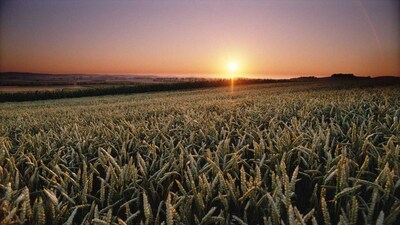
Partnering with farmers informally can be an invaluable experience for new entrants, the next generation and those wishing to take their careers to the next step.
Steph Wetherell, mentoring programme co-ordinator for the Landworkers' Alliance, says mentors can help support new farmers become established and share their experiences.
Ms Wetherell says: "There are some incredibly knowledgeable and experienced practitioners and the mentoring relationship helps people use their experience to guide people,
while supporting them to make their own decisions.
"For new entrants, it can be really challenging getting started in agriculture. For agroecological farming there is little appropriate training and, as a result, it can be really difficult to build a viable business which can be sustainable in the long-term.
"Mentoring offers a way for experienced practitioners to help guide new entrants through the challenging first few years of setting up a business and help them make the right decisions for their situation."
Foster
Alana Black, project and communications officer at Rural Youth Project, says only 13 per cent of young people in rural areas feel they have a say in their community, adding it was vital to foster an environment for rural youths to access a network of experienced leaders.
She says: "The Rural Youth Project provides opportunities, such as our ideas festivals and inter-generational learning journeys, held in partnership with the Scottish Enterprise Rural Leadership Programme, for young people and older leaders to come together to learn, support and consider solutions to the biggest issues which plague rural areas.
"Utilising the skills of experienced leaders is vital to developing the leadership, enterprise and communications skills of rural youth and, in turn, empowering them to play an integral part in making rural places attractive and viable for young people to build their lives and their futures there."
Respect
Sarah Palmer, National Federation of Young ��������' Clubs agri and PR manager, says there is mutual respect between those who have a track record within the industry and those who are passionate to progress, with exchanges of experience, ideas, practicalities, knowledge and a listening ear good for young people.
She says the club, county, area and national structure of the organisation was an established example of informal mentoring.
She says: "Young ��������' Club [YFC] members are encouraged to take part, learn skills, optimise training offered for the range and levels of officeholder roles and share their knowledge and experience with fellow YFC members.
"There is continual succession of active leadership practice, which ranges from administration, organisation, governance and compliance, to programme and event development, training and industry collaboration.
"All this takes place voluntarily and in addition to study and work."
She says governance and compliance for charities helps YFC officeholders learn and practise the levels of responsibility and knowledge needed, which is then passed on while staying connected and offering support.
Covid-19’s impact on mentoring opportunities
The Covid-19 pandemic has impacted mentoring opportunities, with a switch from face to face discussions to virtual meetings, as well as seen less interest in the service, according to Ms Wetherell.
She says: "The initial group gathering for the mentees and training for mentors has all been online."
"In addition, some of the mentoring has taken place online until restrictions have allowed face to face meetings.
"In fact, some of our 2020 participants asked to postpone their involvement until 2021 as they were overwhelmed by the challenges they were facing in their business due to the pandemic.
"As it was an initial two-year funded pilot, we are also looking for ways to fund the programme long-term. Our plans are to collaborate with more organisations to encourage broader uptake of the programme across different farming sectors, as it has been quite horticulturally focused in the pilot programme."
Consistent
But Mr Davies reported seeing a consistent number of farmers requesting a mentor despite a suspension in face to face meetings.
He says: "We have had 115 requests since the pandemic began.
"I think that demonstrates perfectly how the agricultural industry does not stop and day to day work on-farm has not changed that much during the pandemic.
"�������� are still solving problems, developing new ideas and are always interested in what other farmers are doing."
Ms Ryan says the pandemic has helped accelerate Meat Business Women's progress.
"It has highlighted how isolated our community felt and a need to come together virtually each month," she says.
"While there will be an opportunity for mentors and mentees to meet face to face, most will remain virtual to adhere to time and geographical restrictions since relationships have been formed across the globe as well as with real senior leaders in the meat industry."
Recruit
Mr Goatman says there were plans to recruit further BGS Grazing Mentors later this year in preparation for the 2022 grazing season.
He says: "We are particularly keen to recruit mentors in the north of the UK."
Ms Hudson says mentoring and developing individual members through sponsored event places with follow-up training and presentations was one future ambition for Yorkshire's Future ��������.
She says: "Our members have identified a need for someone to discuss and sound out new ideas and business considerations.
"More experienced Future �������� have been mentoring younger members on an informal basis, but we feel there is a real need to offer other Future �������� the opportunity to get involved.
"We are currently designing a mentoring programme which will be piloted this year."
In your field: Daye Tucker and Lawrence Martin, Stirlingshire
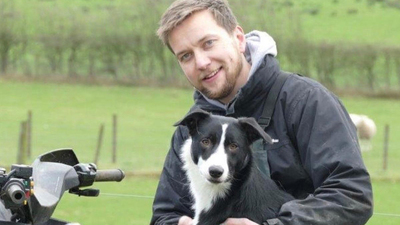
Daye Tucker, owner of Carbeth Home Farm, Stirlingshire, ran her farm single-handed for 15 years.
Now past retirement age, Ms Tucker grasped the opportunity to mentor and offer an apprenticeship
to a new entrant, Lawrence Martin, using SRUC's modern apprentice model, following a chance Twitter conversation.
Mr Martin, who came from a non-farming background, studied for a higher national certificate in agriculture
at Oatridge College and later worked at Carbeth, allowing him to work on the farm while learning practical skills.
Mr Martin says: "With no obvious succession, Daye and I connected at the perfect time in her life.
"She was looking for someone to help bring new energy and enthusiasm to the business.
"I was looking for an opportunity to get onto the farming ladder. Since then, she has become my mentor and great friend."
Background
With a background and interest in IT, Mr Martin brought new skills and efficiencies to the farm, using the technology which had already been invested but not fully utilised.
Ms Tucker says: "I have always seen the value of and been excited by new technology and how it fits with our largely traditional industry.
"AgriWebb Farm management software is a great example of something I spotted with potential and immediately alerted Lawrence.
"At one end of the scale I can walk a field and enter a task in the mobile app, such as a broken water trough or a large stone.
"At the other end, Lawrence does the heavy tech lifting, recording flock life data, dry matter paddock measurements, feed usage, sales data and much more."
Looking to the future, the pairing intend to increase diversification to strengthen the whole farm business plan.
This will continue to grow their environmental, community and carbon efficiency credentials.
Next steps
If you are interested in mentoring opportunities as either a mentor or mentee, you can visit these organisations for more information:
BGS Grazing Mentors (britishgrassland.com/grazingmentors)
Future �������� (yas.co.uk/futurefarmers)
Institution of Agricultural Engineers (iagre.org)
Landworkers' Alliance, in collaboration with the Community Supported Agriculture Network, Organic Growers Alliance and Ecological Land Co-operative (landworkersalliance.org.uk/ mentoring-2)
Meat Business Women (meatbusinesswomen.org)
National Federation of Young ��������' Clubs (nfyfc.org.uk)
Rural Youth Project (ruralyouthproject.com)
The Henry Plumb Foundation (thehenryplumbfoundation.org.uk)
Worshipful Company of �������� (farmerslivery.org.uk)





